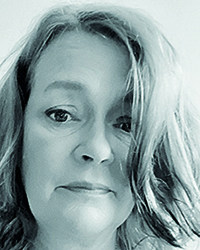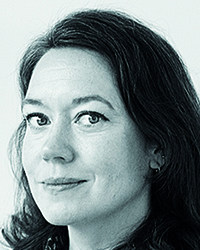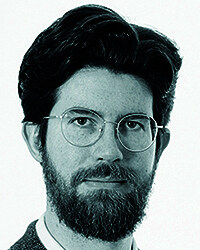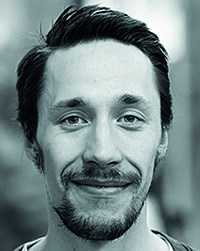The latest doctoral candidate survey at Gothenburg University, conducted in 2023, shows that as many as 30 per cent of doctoral candidates speak little or no Swedish at all.
According to previous reports, many foreign doctoral candidates suffer from loneliness and feel excluded from the sense of community at their departments.
“These problems have come to light at both the IT faculty and the natural sciences faculty, which are the ones that I know best,” says Lillemor Dahlgren, coordinator for gender equality and equal treatment measures at Gothenburg University. “International doctoral candidates say that doctoral candidates form different groups and that some people can feel excluded because, for example, they do not have access to all the relevant information and material in English.”

Lillemor Dahlgren
Coordinator for gender equality and equal treatment measures at Gothenburg University
Previous doctoral candidate reports from the student unions at the university show that the percentage of doctoral candidates who speak little or no Swedish increased from 15 per cent in 2013-2014, to 25 per cent in 2018-2019, and now 30 per cent in 2023.
Gothenburg University’s Student Union’s doctoral candidate report from 2020 showed that many international doctoral candidates fear that their lack of Swedish skills will lead to social exclusion.
Among those who speak little or no Swedish, 50 per cent of the women and 37 per cent of the men felt that they felt marginalised. Many doctoral candidates say that they do not have access to all the information they need because it is often only provided in Swedish. Similar results were reported in an earlier survey at Lund University.
The Gothenburg University report also says that other research has found that doctoral candidates’ feelings of social exclusion can be linked to sick leave or dropping out of doctoral studies.
But individuals’ experiences outside the university can also contribute to their feelings of exclusion.
Susanna Karlsson, a docent of Swedish at Gothenburg University and one of the experts involved in the development of its new language policy, explains that language is obviously not only a factor in the workplace.
But also for social contacts beyond the university’s walls and, for example, in understanding how authorities work or for communication with schools and preschool staff for those who have children.
“We should not forget that doctoral candidates are here for at least four years,” she says, “and often five or six years. So a considerable part of their lifetime. There can then be a strong personal incentive to learn the language spoken in the country you live in.”

Susanna Karlsson
Docent of Swedish at Gothenburg University
She also reminds us about the government’s plans to introduce Swedish language requirements for people to be able to obtain a permanent residence permit.
“If the government implements these plans, obviously that will also be a strong incentive for doctoral candidates to learn Swedish.”
A rule change could affect how higher education institutions act in this regard.
“If they want to retain the competence of international doctoral candidates in Sweden, we can envisage that some universities will invest in doctoral candidates’ Swedish skills, for example by making Swedish studies a requirement for granting extensions,” says Karlsson.
The Swedish Higher Education Authority, UKÄ, confirms the general picture of the risk of social isolation and general exclusion for doctoral candidates who do not speak Swedish.
“The language issue is not something that we have analysed specifically. But we see in the results of our normal investigations that there is definitely a danger of loneliness, exclusion and lack of support,” says Tobias Osvald, a research officer at UKÄ. He is one of the authors of a 2023 UKÄ report that analyses doctoral candidate education in detail.

Tobias Osvald
Research officer at UKÄ
“In our report, we see that doctoral candidates’ education is very complex in general, and that it often involves stress. There are role and goal conflicts that can impact the doctoral candidates’ work environment and studies. This applies to all doctoral candidates, but international doctoral candidates stand out.”
“We also see that doctoral candidates who do not speak Swedish as their first language are a group that can find it much harder to feel a sense of belonging and to fit in in different contexts. This is often due to a lack of information in English or the fact that in certain environments you do not get the opportunity to participate fully in things like teaching or supervision if you do not have good command of Swedish,” says Osvald.

Topias Tolonen
Chair of the Swedish National Union of Students’ doctoral candidate committee, SFS-DK
In an email reply to Universitetsläraren, Topias Tolonen, chair of the Swedish National Union of Students’ doctoral candidate committee, SFS-DK, emphasises that the language issue is definitely a problem for many international doctoral candidates.
He points out that social problems can occur as a result of various situations: at many departments, people speak Swedish at coffee breaks, seminars are given in Swedish or departmental staff information meetings and board meetings are held in Swedish.
In an opinion piece in Universitetsläraren last spring, SFS-DK wrote about how language barriers impact doctoral candidates’ opportunities to participate in decision-making within higher education institutions.
But Tolonen explains that there are a number of factors that can combine to cause feelings of exclusion. For example, many foreign doctoral candidates have to struggle with migration processes and do not have friends, family or support systems in Sweden.
The issue of international doctoral candidates feeling excluded because they do not speak Swedish is far from new. In 2015, the SULF Doctoral Candidate Association focused on the issue of inclusion of non-Swedish-speaking doctoral candidates in an opinion article in Universitetsläraren.
”The fact that Swedish is spoken at both staff information meetings and at coffee breaks at many departments can lead to increased isolation of international doctoral candidates, says the SFS doctoral candidate committee.”
And the same proposed solutions come up repeatedly from doctoral candidates in surveys and from SFS-DK and the SULF Doctoral Candidate Association: All important information must be available in both Swedish and English, and meetings and seminars must be accessible to people who do not speak Swedish. But they also want to increase accessibility to Swedish language courses and arrange events like regular ”language cafés” in Swedish. Roughly the same suggestions today as in 2015.
The coordinator for gender equality and equal treatment measures at Gothenburg University, Lillemor Dahlgren, emphasises that how foreign doctoral candidates, with or without Swedish language competence, are integrated in the workplace is a management issue.
“It is always the manager who has the overall responsibility to ensure that there is a workplace culture and climate that includes everyone,” she says.
Miss essential information
Many doctoral candidates report that they do not have access to all the information they need because it is often only provided in Swedish.
This applies to information given orally at staff meetings, but also that in writing at both departmental and university level: information by e-mail, steering documents, regulations and the like,.
Source: Gothenburg University student unions’ doctoral candidate report 2020


















